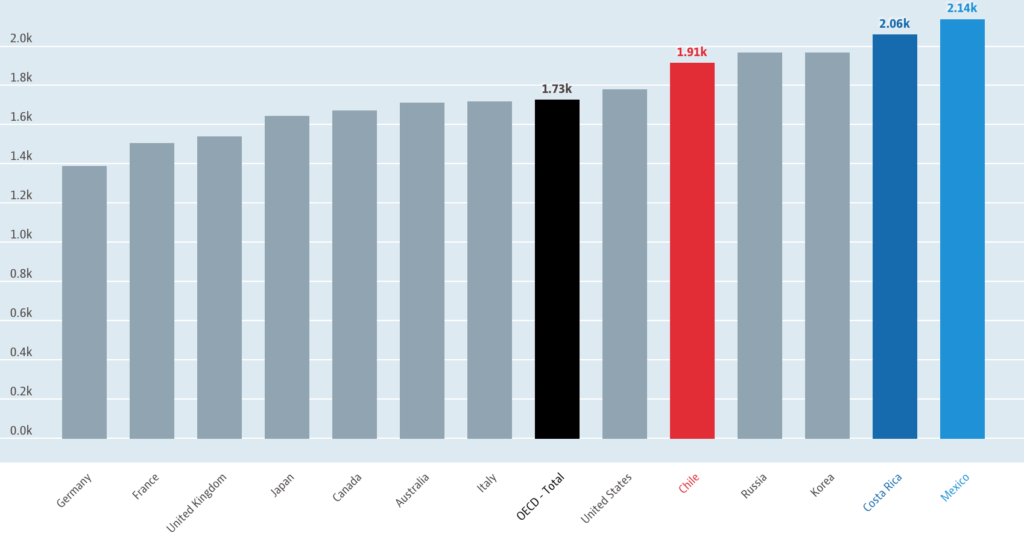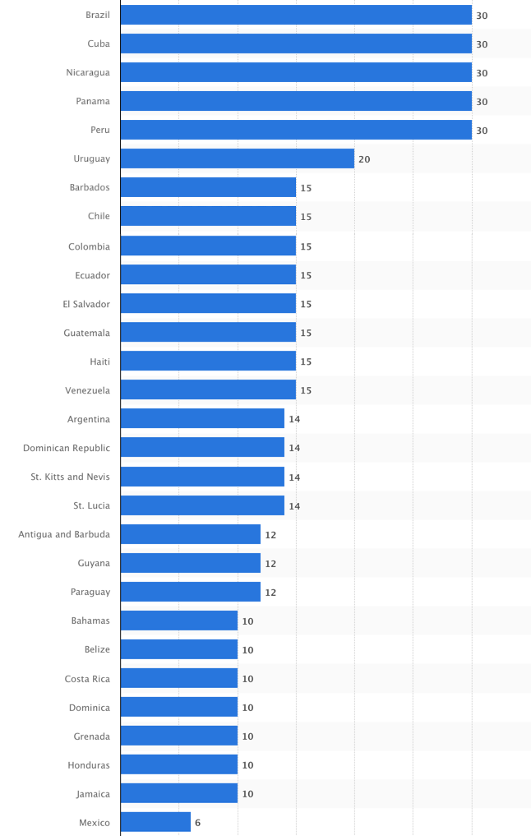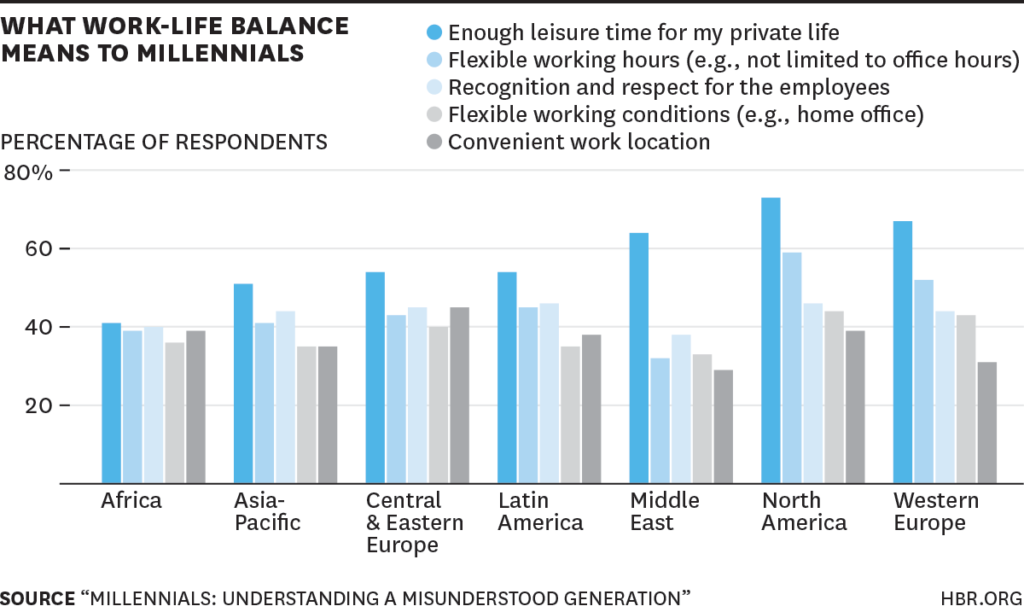Labour flexibility is still a challenge in a lot of Latin American countries. However, better working conditions regarding salary levels, contractual regularisation and the right to unemployment benefits are now being demanded. Labour reforms need to be driven forward and labour flexibility policies need to be incorporated into this. This will stimulate employment and the productivity of future generations.
Work situation in Latin America
The work situation in Latin America has certain problems that hinder the implementation of new labour flexibility policies.
As we mentioned in the article “The challenge of work-life balance policies in Spain and Latin America”, Latin Americans work the most hours of anywhere else in the world. Mexico and Costa Rica (see below graph) stand out as having the highest number of hours per active member of the population, with 2,255 hours and 2,212 hours respectively. This data clearly reflects the complexity of proposing and implementing labour flexibility policies in these countries.

According to data collected in the report Employment Perspectives 2017 (in Spanish), Mexico is the Latin American country with the least amount of holiday allowance. By law, Mexican workers have the right to six paid holiday days per year. This figure increases by two days each year to a maximum of 12 days holiday. In other Latin American countries, there are significant differences: Chile, Colombia and Bolivia can have up to 15 days, while Peru, Brazil or Panama can reach 30 days.

Dante Sica, Argentinian Minister for Work and Production, stated that modernising labour legislation is key to generating employment and investment. He made these declarations during the International Work Conference that took place in Geneva (Switzerland) last June, 2019.
The minister reflected on the great challenge for countries with large numbers of unregulated or unemployed workers, facing rapid change. During one of his speeches, he stated “Latin America should seize the opportunity brought about by the population boom to introduce better working conditions and new opportunities for the millions of young people“.
Labour Flexibility in Latin America
Due to increased interest from millennials, flexible working hours has also become a challenge for Latin American companies. The survey “Work for me. Understanding candidates’ work flexibility demands”, conducted by ManpowerGroup Solutions, showed that work flexibility is one of the three main factors candidates take into account when making professional decisions. Nearly 40% of candidates worldwide considered this to be an important factor when choosing a company to work for.

Conversely, data from the study “What is happening in Latin America: Cloud, safety and flexible working” carried out by Citrix on different companies in Brazil, Argentina, Chile, Colombia and Mexico indicates that 46% of Latin American companies still do not offer any labour flexibility policies. Meanwhile 22% offer the possibility of working from home, 21% can work from anywhere and 11% allow teleworking.
The same study also found that 53% of the companies that promoted labour flexibility did so because the workers had asked for it. And, on implementing these policies, they noticed many benefits including greater productivity, better time management, cost savings, improved company image, more creativity, less resignations and reduced absenteeism.
Having said this, 66% of IT managers believe that employees are more productive if they are in the office. Consequently, 52% have not yet adapted workspaces in line with new policies on flexible working. This is reflected in the study conducted by Citrix; whose conclusions highlight the need for cultural change and increased trust in employees to be able to implement labour flexibility policies.
In this regard, we want to give as an example one of the latest labour reforms introduced in Chile, in which steps have already been taken to boost labour flexibility in Latin America.
Success Story: Labour Reform and Work Flexibility in Chile
In May 2019, the government of Chile introduced a new labour modernisation law for work-life balance and integration. Its introduction was coupled with a certain controversy over work flexibility.
This new Bill includes, in terms of labour flexibility, certain improvements such as teleworking, flexible hours and more holiday allowance. All these measures are thought to encourage a better work-life balance, family time and work flexibility for Chileans.
However, 64% of workers believe that their employer will not allow labour flexibility, according to data collected in the survey by Trabajando.com in conjunction with newspaper El Mercurio. It still remains to be seen how companies in Chile will apply these new reforms. They will have to adapt their time monitoring systems and their accidents policy, among others, to this new labour flexibility reality. Wisar will keep track of all the latest news on labour flexibility in Latin America and will keep you informed via this blog.
If you are an American company or have a presence in Latin America and are interested in offering flexible work opportunities, then please do not hesitate to get in touch with us. We have the talent you need!


